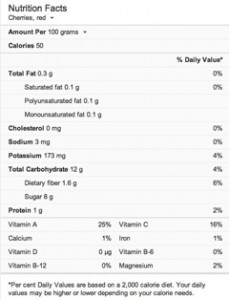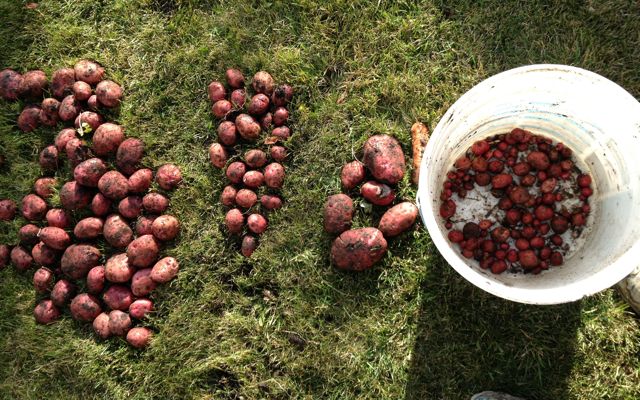
Photo from ShelleyGoldbeck.com
Are you confused about whether you should eat eggs?
Your confusion is justified.
Eggs have been called ‘the perfect food”. Although, so has milk.
When Ancel Keyes’ flawed hypothesis that cholesterol causes heart disease became “common knowledge” in the medical community, eggs became villains. Too much cholesterol.
Doctors warned their patients off eggs, despite their having other essential nutrients like protein, omega 3 fats, and various vitamins and minerals. To learn more about egg nutrients see: http://www.eggs.ca/eggs101/view/22/egg-nutrition and http://en.wikipedia.org/wiki/Egg_(food)
It was a sad time when the doctor insisted my grandma eat no more than three eggs each week. She had eaten a boiled egg nearly every day of her life, at that point, over eight decades.
I told her that eggs have components to help the body metabolize cholesterol. They have other beneficial nutrients. There was as much reason to eat them as not.
But who was I? The doctor surely knew better than I did.
Recently I found out she didn’t even have a cholesterol problem. It turns out she never fasted before her lipids blood test. To Grandma, skipping breakfast was intolerable. She needed to eat!
And of course eating an egg an hour before the test will skew the results.
When the lodge withheld her breakfast before the tests, all was normal.
She deprived herself of her morning egg for many years for nothing!
That’s not the end of the egg debate.
You see, the egg you eat today is not the same egg she ate.
Hers came from a family farm, where the chickens have access to grass everyday. They have fresh air and sunshine.
They exercise, poking around looking for insects. They fly up in terror when a fox strolls by their secure enclosure.
They have nest boxes so they can lay their eggs in privacy; (they seem to like that).
They aren’t confined to a space smaller than a sheet of paper, with their coop mates in their faces 24 hours a day.
Their feed consists of grain, lots of green grass and weeds, the odd insect, and plenty of assorted kitchen scraps.
My grandma would say that they are happy chickens. She believed happiness was a vital condition for healthy chickens.
The egg she ate was fresh, perhaps two days old. It had a golden yolk with a firm, jelly-like white that didn’t cover the entire frying pan when cracked. The egg she ate may have been fertile. It most certainly had more nutrients than the anemic orbs in the grocery stores today.
The eggs we buy in supermarkets are up to two months old before we buy them. The Egg Marketing Board says it’s okay. The egg white is almost liquid, the yolk is anemic, and it just doesn’t taste fresh.
The conditions in which factory farm hens live are appalling. Their diets are garbage: waste from food processors, the carcasses of their colleagues, antibiotics, arsenic, and other unnatural substances. There is no happiness. There is much illness and despair.
Lately I’ve noticed commercials on TV for egg farmers. They have a catchy tune, “I’m an egg-man….” And they show pictures: a farming family, bucolic pastures, red barns, soft morning light dancing through the leaves.
Not once do they show a chicken.
They know we wouldn’t be singing the happy tune if we saw the chickens.
It’s like almost everything else on TV. It’s not real.
The reality is the commercial egg business has such slim margins that farmers are cornered into factory farming and its accompanying tortures.
Besides being cruel, the end product is inferior. Sick animals produce sick food. It’s that simple.
Even so-called Omega 3 or Organic eggs are suspicious products. I recently helped an elderly friend with her grocery shopping. She wanted organic eggs. I opened the carton to check them for cracks. They looked like they had been dyed. The shells were an unnatural, almost glowing orange. I would be leery of eating those eggs, despite their organic label.
Ideally, you have a few chickens in your backyard coop. It’s legal in some jurisdictions. Before Calgary changed their by-laws I had a backyard coop with three little red hens.
We had the freshest eggs possible plus the enjoyment of caring for other creatures, observing their habits, and being connected to our food. My hens composted my kitchen scraps faster than any compost system. They provided hours of entertainment for the dog, the grandchildren, and even the grandpa to those children. He loved checking for eggs as much as they did.
If you can’t manage having your own chickens, find a neighbour or a farmer with a few.
If you have access to healthy eggs from happy chickens, I recommend you eat eggs. In moderation, like everything.
If you can’t get real eggs, I suggest you eat them sparingly or not at all.
Breaking news: The US FDA is campaigning to outlaw organic eggs. See:
http://www.motherearthnews.com/homesteading-and-livestock/no-more-organic-eggs-zw0z1309ztri.aspx#axzz2epVodpjP
Another article to read here
 Cherry season says summer. And it’s here now!
Cherry season says summer. And it’s here now!




